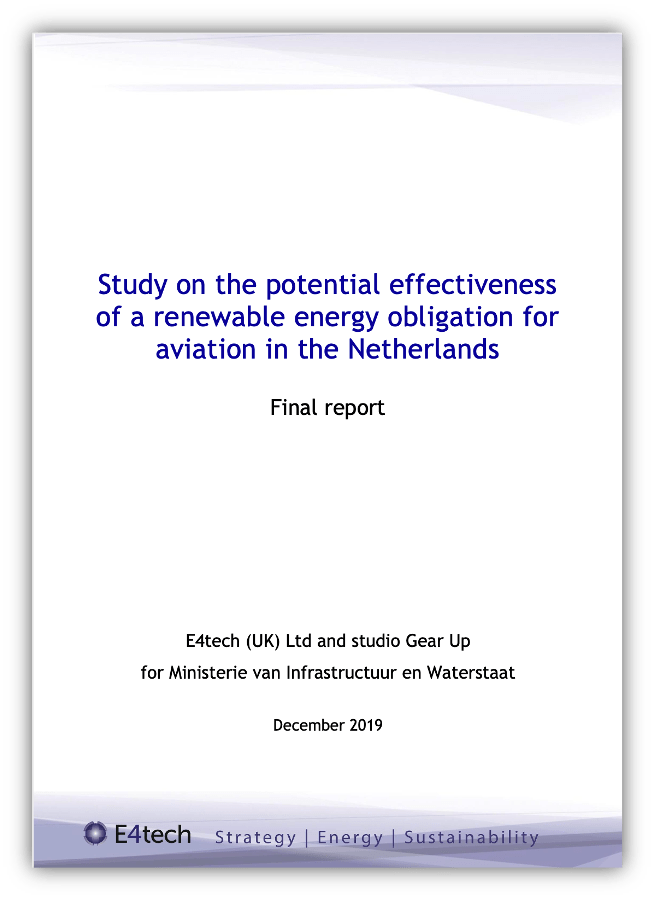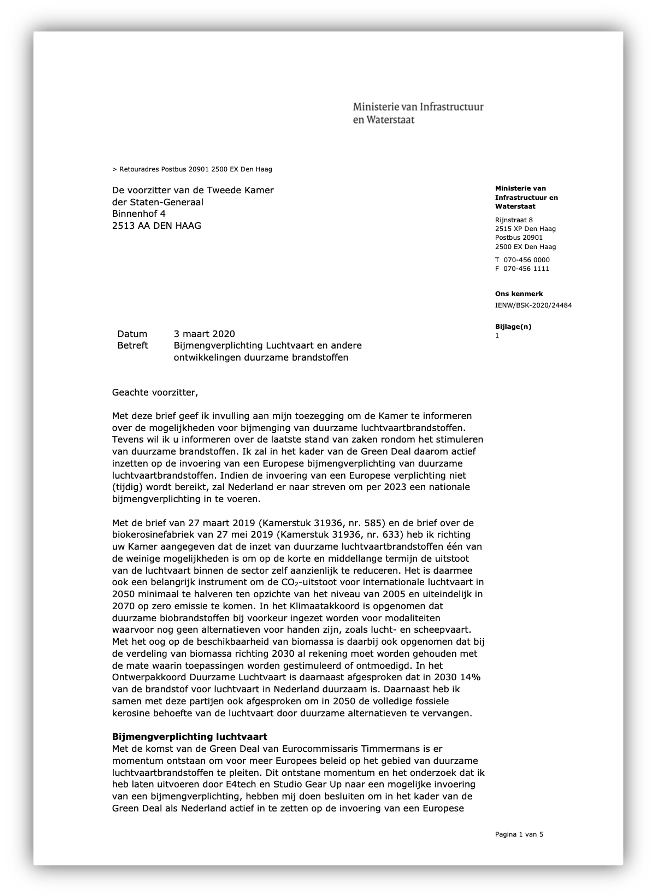Within three years from now, airplanes in Europe should be obliged to partially use sustainable aviation fuels, says Cora van Nieuwenhuizen, Dutch Minister of Infrastructure and Water Management. studio Gear Up, together with E4tech, provided the underlying analysis. Together with a group of EU Member States Van Nieuwenhuizen wants to accelerate the transition from fossil kerosene to sustainable aviation fuels.
“With this letter I fullfill my committent to inform the Parliament about the possibilities for blending sustainable aviation fuels. I also want to inform you about the latest state of affairs regarding the promotion of sustainable fuels. In the context of the Green Deal, I will therefore actively pursue the introduction of a European blending obligation for sustainable aviation fuels. If the introduction of a European obligation is not achieved (in time), the Netherlands will endeavor to introduce a national blending operation by 2023.” [Original quote in Dutch, translation by studio Gear Up].
The decision by the Minister is also based on research the Ministry commissioned on the potential effectiveness of a renewable energy obligation for aviation in the Netherlands. E4tech and studio Gear Up carried out this research.
The links to the press release by the Ministry, the letter to Parliament and the report of the research are found here:
- Press release government (3 March 2020)
- Letter to Parliament (3 March 2020)
- “Study on the potential effectiveness of a renewable energy obligation for aviation in the Netherlands” (December 2019)





